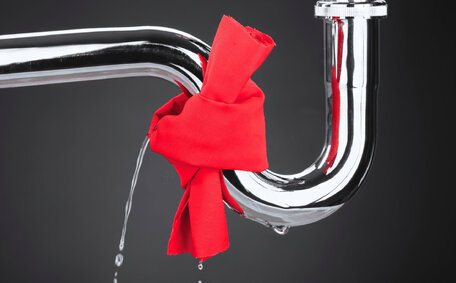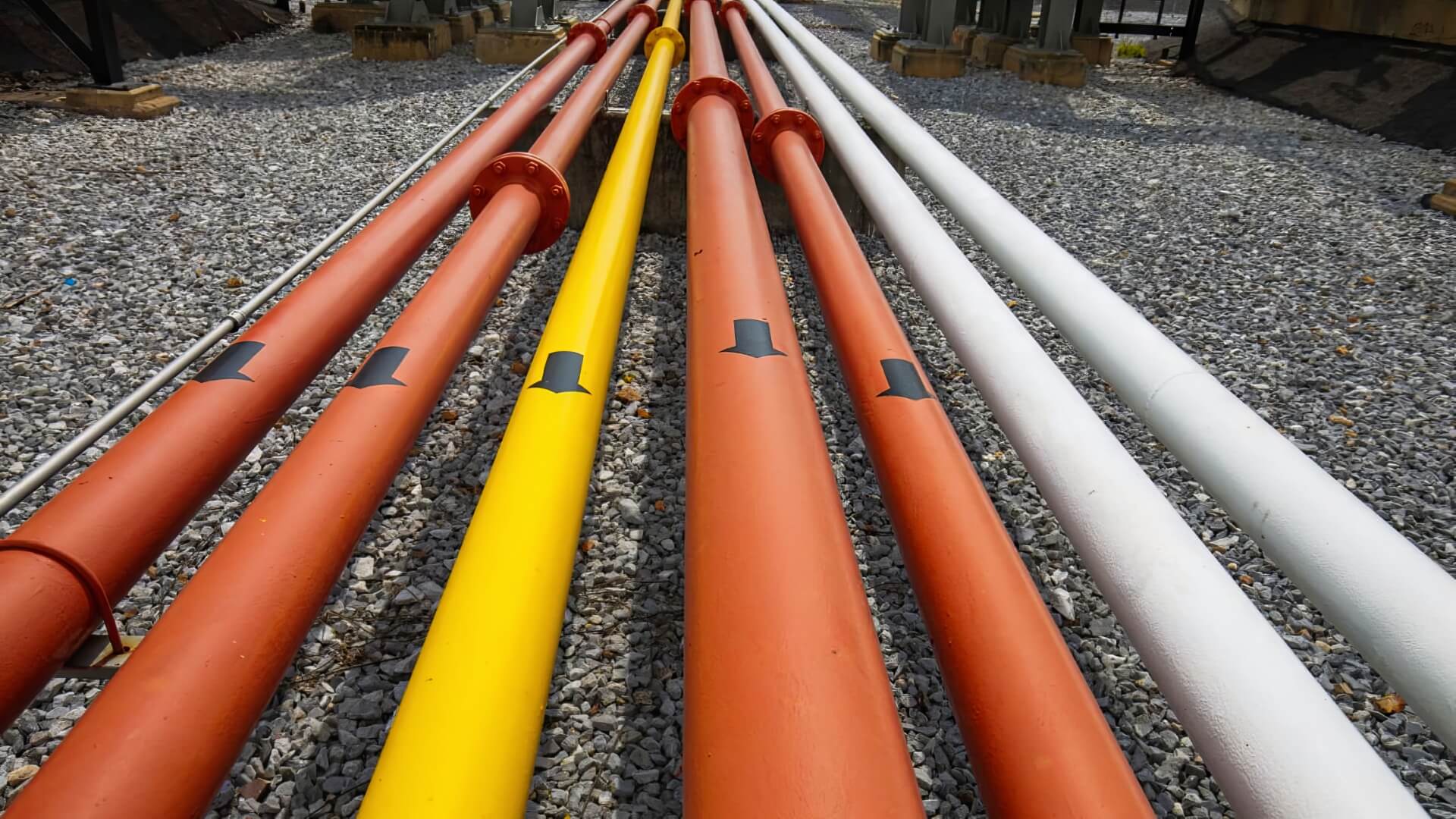Dealing with a blocked drain can be a significant inconvenience. A clogged drain in your home can cause water to back up rapidly, leading to potential flooding and mess. In some instances, blocked drains may pose health risks due to stagnant water or sewage backups.
It’s essential to know how to handle blocked drain emergencies effectively. From preventative drain maintenance to emergency drain cleaning and repair, Our skilled technicians provide top-quality service in the Wetherill Park area.
In this guide, we’ll cover the do’s and don’ts of handling blocked drain situations on your own at home.
We’ll outline self-help methods for simple clogs and signs that signal the need for a professional plumber.
Understanding Blocked Drain Emergencies
A blocked drain emergency arises when your drains become thoroughly clogged, hindering proper water flow. Usually, such clogs develop as debris, fat, hair, and other materials accumulate, restricting water flow within the pipes. However, sudden blockages can also occur from events like pouring too much fat or oil down a drain.
There are several signs that indicate you have a blocked drain emergency:
- Water draining very slowly or not at all
- Gurgling sounds coming from drains
- Bad odours coming from drains, especially sulphur or rotten egg smells
- Water accumulating around drains or reversing from sinks and tubs
Prompt action is crucial with blocked drains to prevent indoor flooding, structural damage, and health risks. While you can try to clear simple clogs with a plunger, extensive blockages often necessitate professional drain cleaning equipment to avoid pipe damage.
Allowing the blockage to persist risks sewage backups and contaminated water flowing back inside your home. Contact emergency services without delay if you suspect a blockage in your sewer or main sewer pipes. Responding quickly helps minimise further plumbing issues.
Causes of Blocked Drains
There are several common culprits that can cause drains to become blocked in Wetherill Park homes:
Accumulation of Hair, Soap Scum and Skin Cells
One of the most frequent causes of blocked shower drain and basin drains is the gradual buildup of hair, soap residue, and dead skin cells over time. As these materials collect within pipe joints and connections, they trap other debris, eventually amassing into a substantial clog.
Fat, Oil and Grease
Disposing of fat, oil, and grease in kitchen drains inevitably leads to blockages. As these thick liquids cool, they congeal and coat pipes. Food scraps then stick to these fatty deposits, causing obstructions.
Improper Disposal of Foreign Objects
Flushing or washing items like wet wipes, cotton tips, dental floss, paper towels, feminine hygiene products, condoms or kitty litter down toilets and sinks leads to trapped debris within pipes. These objects don’t break down, eventually blocking flow.
Invasive Tree Roots
In older homes, cracks in exterior drainage pipes provide access for tree roots. As roots grow, they infiltrate drains seeking nutrients and water. Tree root encroachment can cause major blockages and damage to pipes.
Structural Pipe Issues: Fractures, Misalignments, and Bellies
Over decades of use, sections of buried drain pipes can settle, bend or break from soil movement and pressure. These distortions act as catch points for passing debris, increasing chances of blockages.
Health and Safety Risks
A drain blocked can pose health risks due to the potential for harmful bacteria growth in stagnant water. A slowed water flow resulting in stagnant water enables anaerobic bacteria, including E.
coli, Salmonella, and Shigella strains. These bacteria spread illnesses through cross-contamination.
Backed up sewage also enables insects like cockroaches and drain flies to breed and enter homes. Mosquitos are similarly drawn to stagnant waters. Insect infestations then raise risks of diseases like dysentery, typhoid, hepatitis A, and gastroenteritis.
Toxins from drain blockages can also cause headaches, rashes, and breathing issues. Methane gas leaks are another danger, creating explosion risks.
That’s why it’s critical to address blocked drains promptly in a safe manner without doing harm to yourself or your home. Attempting overly strenuous mechanical rodding on your own risks puncturing pipes or encountering hazardous materials, possibly affecting your entire home if you break a sewer line.
If home remedies fail to unblock your drain, it’s advisable to call plumbing professionals who can safely resolve the issue.
Preventative Tips for Drain Health
Install Hair Catchers
Place mesh hair catchers over all shower drains and sink drains to trap strands before they enter pipes. Clean out hair buildup from these devices weekly.
Only Flush Toilet Paper Down The Toilet
Ensure all household members understand that only toilet paper and human waste should be flushed. Items like wipes and tampons should never be flushed as they do not break down and will cause obstructions.
Brush Hair Before Bathing
Brushing hair before showering removes loose strands, preventing them from clogging the drain.
Discard Food Wastes in The Bin
Instead of washing fats, oils and food scraps down the sink, dispose of them in your garbage bin to prevent build-up.
Consider Enzyme Drain Maintainers
Enzymatic drain cleaning products help break down organic matter within pipes while freshening odours.
Immediate Actions for Blocked Drains
When facing a blocked drain, prompt action is key to avoid extensive damage. As soon as you notice a slow flow in drainage or standing water, try these immediate steps:
Attempt to Plunge the Drain
Place a plunger directly over your drain and plunge up and down rapidly 10-15 times to try to dislodge the clog mechanically without chemicals. Repeat the process a few times if needed.
Pour Boiling Water Down the Drain
Boil a kettle of water and gradually pour it down the blocked drain. The heat helps melt fatty blockages while the velocity can help disintegrate debris. Wait 10 minutes then flush with cold water.
Use a Baking Soda and Vinegar Treatment
Mix 1 cup of baking soda with 1 cup of white vinegar, then pour the reactive vinegar down the blocked drain. The chemical reaction breaks up organic matter while the fizzing helps propel the clog. Let sit 30 minutes then rinse.
Eschew chemical drain cleaners, as they may harm your pipes. Seek professional help if DIY methods don’t unclog the blockage to prevent burst pipes or sewage backflows.
When to Call a Professional Plumber
Seek professional help if repeated efforts using plunging or home remedies don’t clear the blockage. Recurring drain clogs also signal it’s time to call a plumber to properly diagnose the underlying cause.
Reach out immediately to Wetherill Park Plumbing, Sydney’s blocked drain experts, if you encounter:
- Sewage backflows inside your home
- Bad odours permeating walls and floors
- Visible pipe damage from rodent infestations or tree roots
- Multiple drains are blocked concurrently
- Outdoor drainage problems are also occurring
Our licensed plumbers are on call 24/7 in Wetherill Park, so don’t hesitate to contact us for emergency blocked drain issues. We utilise advanced methods like hydro jetting, mechanical rodding, suction or trenchless pipe relining to clear the toughest obstructions.
Avoid waiting for a blocked drain to cause serious flooding, mould growth, or sinkholes outside. Get in touch with Wetherill Park Plumbing at 1300 349 338 or via email at jobs@wetherillparkplumbingservices.com.au for immediate emergency drain cleaning services.
What to Tell the Plumber
When calling a professional plumber to address a blocked drain, Furnish detailed information for accurate diagnosis and resolution of the issue.
Key details to mention include:
- Which drains in your home are blocked - kitchen, bathroom sinks, shower, bathtub, toilet, outdoor drains, etc.
- When you first noticed slowed drainage or standing water
- Any gurgling sounds or foul odours coming from affected drains
- If you’ve tried any DIY drain remedies like plunging or chemical cleaners
- How frequently drain blockages occur
- Recent plumbing work or changes, like repairs or additions
- Proximity of trees on your property to drainage pipes
Pictures and videos can also help the plumber analyse the type of clog. Providing complete background helps them troubleshoot the root cause and decide on the proper equipment and methods to clear the blockage completely.
Be ready to show the plumber all affected areas within your plumbing system in your home upon arrival. Promptly clearing the initial blockage is crucial, but a competent plumber will also evaluate your entire plumbing system for any underlying problems, such as pipe damage or misalignments, that may be causing recurring clogs.
With open communication and the right expertise, your blocked drain can be restored to free-flowing condition in no time.






